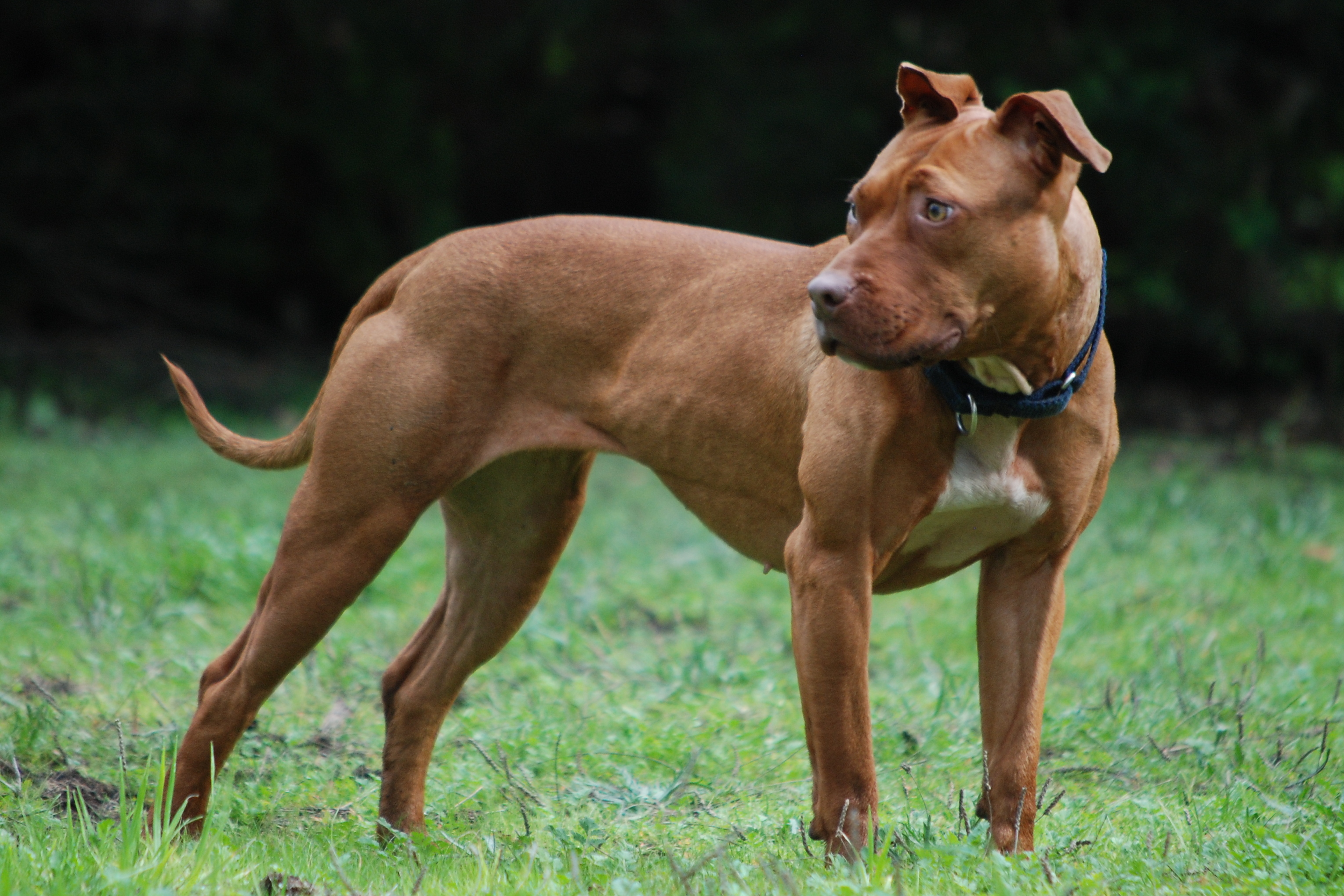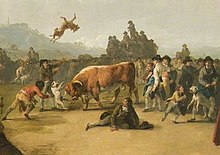Pit Bull Q&A
The study we read this week indicated that the average person is biased against pit bulls. If a dog was identified as a pit bull, subjects rated it as less friendly, harder to train, and more aggressive when compared with lookalikes. However, when the dogs were unlabeled, pit bulls did as well as the control group.
Is this doggy discrimination based on facts or fear? Because the breed was developed for dog fighting, do they just make bad pets? Or is it the fault of poor training? According to this article from Time magazine, pit bulls are involved with 52% of dog-related deaths and 68% of dog attacks, despite making up only 6% of the dog population. So, these animals are more aggressive than other breeds, on average. But is this due to genetics? Or do humans pick pit bulls specifically because they want a tough pet and train them to be so asocial?
Question 1: What breeds are considered pit bulls?
 |
| A purebred APBT |
Answer: The American Pit Bull Terrier is considered the only "true" pit bull, recognized by the American Kennel Club. Depending on which side of the Atlantic you're on, the American Staffordshire Terrier, American Bully, Staffordshire Bull Terrier, American Bulldog, or any crosses of these breeds are considered pit bulls.
Question 2: Where did pit bulls come from?
 |
| Bull-baiting |
Answer: The ancestors to pit bulls, Old English Bulldogs were bred in the UK in the 19th century for a fun, family friendly activity called "bull-baiting", where they would attack a bull for hours for an audience until the creature died or collapsed from exhaustion. (Keep in mind that the British thought that they were the most civilized and advanced society in the world.) In 1835, Parliament banned bull- and bear- baiting because it was cruel to animals.
 |
The bloodthirsty Brits invented a new game, called "ratting", where they bet on which dogs could kill the most rats in a set amount of time. (And somehow they thought their colonies were populated with "savages"?) To create a dog that was fast enough to catch rats, bulldogs were mixed with terriers and the first pit bulls were born.
Question 3: Who is the target audience for pit bulls today?
 |
| Pit Bulls became beloved American pets in the 20th century. |
Answer: As pit bulls became popular in America, they were raised as family pets rather than prize fighters. Various dog rescues describe pit bulls as playful, loyal, and intelligent, but also strong willed and stubborn.
Pit bulls today are seen as a dangerous pet not because of a genetic predisposition to violence, but because their fierce background makes them appealing to people who don't want to train a well-mannered dog. In this study from the National Library of Medicine, high-risk breeds of dogs like pit bulls were strongly correlated with owners who had previous criminal convictions. So, violent dogs may be a chicken-and-egg situation.
Question 4: Is fighting a part of the pit bull nature?
 |
| What happens when we treat puppies like guard dogs? |
Answer: According the ASPCA, not really. Pit bulls may be more likely to act aggressively towards other animals, but they are actually well disposed towards humans because they were bred to interact safely with their handlers. When trained, claims the ASPCA, pit bulls can be gentle, loyal, and affectionate pets. Why do they still get a bad rap?
The fault, it would seem, is with pit bulls' bad reputation. Many people want pit bulls precisely because they want a tough, mean, guard dog. Therefore, they don't properly socialize their dogs. These animals are chained up and isolated from positive human and animal interaction. Pit bull aggression becomes a self-fulfilling prophecy.
Question 6: Is rapper Pitbull actually Dr. Worldwide?
 |
| Pitbull tweeted this picture upon his honorary graduation. |
Answer: Yes. Pitbull graduated from Miami Coral Park Highschool and was later awarded an honorary doctorate from Doral College in Florida for his contributions to promoting education. This is a really cool and awesome fact for someone who is currently paying thousands of dollars to get a degree.
Wow! you know a lot about Pitbull's (both kinds). It is interesting to me that Pitbull chose that as a rapper name instead of chihuahua or schnauzer, I wonder what that says about the connotations that come with Pitbull's?
ReplyDeleteI love the Time Magazine article that you referenced in your response! It offered some great insight. This is a little off topic, but I'm curious if you would ever consider adopting a pit bull?
ReplyDeleteProbably, if I wanted a dog. I wouldn't be opposed.
DeleteThis is an awesome post! I love the British slander. I wonder what it would take for me to get an honorary degree...
ReplyDelete